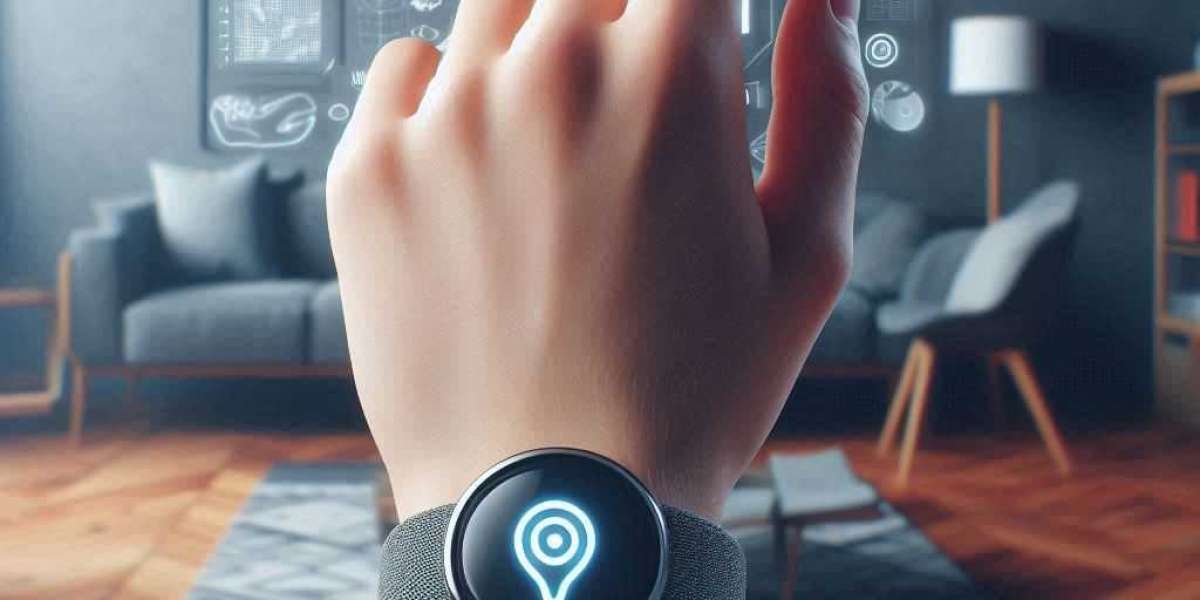How Fitness Trackers Are Transforming Personal Health
In the last decade, technology has taken massive strides in almost every part of our lives, including how we manage our health. One of the most noticeable changes is the rise of fitness trackers—small, wearable devices that help people monitor various aspects of their daily health. From counting steps to measuring heart rate, sleep, and even stress, fitness trackers are quietly reshaping how we view and take care of our bodies.
What Are Fitness Trackers?
Fitness trackers are wearable devices, usually worn on the wrist, that track physical activity and health-related data. They use sensors to collect information like movement, heart rate, and even oxygen levels. Many of them sync with smartphones to provide a detailed overview of your daily, weekly, and monthly activity.
Popular brands like Fitbit, Apple Watch, Garmin, and Samsung have made fitness trackers accessible to millions. Whether you're a professional athlete, a weekend jogger, or just someone trying to be more active, there's likely a tracker that fits your needs.
The Popularity Boom
The global popularity of fitness trackers has exploded. According to market research, over 1 billion wearable fitness devices were expected to be in use by 2025. A big reason for this growth is how much people care about their health, especially after the COVID-19 pandemic. The pandemic reminded many of us how important it is to stay active and take better care of our overall well-being.
These devices give users instant feedback on their health, which motivates them to move more, eat better, and sleep well. In fact, people often report making healthier choices simply because they know their tracker is “watching.”
Key Features That Promote Better Health
Fitness trackers are packed with features designed to make staying healthy easier and more engaging. Here are some of the most common ones:
1. Step Counting
This is one of the most basic but powerful features. The simple act of counting steps encourages people to move more. Hitting the widely recommended goal of 10,000 steps per day can make a big difference in overall fitness and heart health.
2. Heart Rate Monitoring
Many trackers continuously measure your heart rate throughout the day. This can help you understand how your body responds to different activities—whether you’re working out or simply resting. It can also alert you to unusual changes that may require medical attention.
3. Sleep Tracking
Getting enough good-quality sleep is just as important as exercise and nutrition. Sleep-tracking features monitor how long and how well you sleep, providing tips to improve your rest. Some devices even suggest a better bedtime routine.
4. Activity Recognition
Some advanced trackers can automatically recognize if you’re running, biking, swimming, or even doing yoga. This helps you build a more complete picture of your physical activity without having to log everything manually.
5. Calorie Burn Estimation
Fitness trackers estimate how many calories you’ve burned throughout the day based on your movement and heart rate. This is especially helpful for people trying to lose or maintain weight.
6. Stress Tracking and Breathing Exercises
Certain devices can monitor stress levels using heart rate variability and guide you through calming breathing exercises. Managing stress is vital for long-term mental and physical health.
Motivation and Accountability
One of the biggest advantages of fitness trackers is motivation. When people see their stats in real time, it gives them a sense of accomplishment. Many devices also send reminders if you've been inactive for too long, encouraging users to move more throughout the day.
Apps linked to trackers often include goal-setting features, achievement badges, and social sharing options. Competing with friends or simply aiming to beat yesterday’s score can be incredibly motivating.
Plus, having a visual record of your progress over weeks or months keeps you focused and motivated to stay consistent. It turns health improvement into a personal game—with rewards that go beyond the screen.
Data-Driven Health Insights
Fitness trackers collect a lot of data over time, and this can be incredibly useful. Patterns begin to emerge, and users can understand how different habits affect their health.
For example, someone might notice they sleep better on days they exercise. Or they may realize that high stress levels come after poor sleep. Having this data helps users make informed decisions about their routines.
Additionally, many health professionals are starting to use wearable data to support patient care. Sharing this information with a doctor can help with diagnosing and managing chronic conditions like diabetes, high blood pressure, and obesity.
Fitness Trackers and Chronic Disease Management
Fitness trackers aren’t just for the young or athletic—they’re making a big impact in managing chronic diseases. Here's how:
Diabetes: People with diabetes can use trackers to monitor physical activity, which is crucial in managing blood sugar levels.
Heart Disease: Tracking heart rate and exercise levels helps those with heart issues stay within safe activity limits.
Obesity: Monitoring calorie burn, movement, and sleep helps support weight loss and maintenance.
Sleep Disorders: Sleep tracking can identify patterns and support treatment for insomnia or sleep apnea.
Doctors and health organizations are increasingly recommending these devices as part of long-term care plans.
Mental Health Benefits
While we usually think of fitness in terms of muscles and endurance, mental health is just as important—and fitness trackers help here, too.
Regular exercise improves mood and reduces anxiety.
Sleep tracking helps address insomnia, a common mental health challenge.
Stress monitoring encourages mindfulness and relaxation practices.
In some cases, just seeing that you've had a “good day” physically can boost your mood. It builds self-awareness and encourages healthier emotional habits.
Are There Any Downsides?
Despite their many benefits, fitness trackers aren’t perfect. Here are a few things to keep in mind:
Data Accuracy: While trackers are generally accurate, they can sometimes miscount steps or incorrectly estimate calories burned.
Over-Reliance: Some users may become too focused on the numbers and ignore how they actually feel. For instance, pushing to hit a step count even when tired or sick can be harmful.
Privacy Concerns: Fitness trackers collect a lot of personal health data. It's important to understand how that data is stored and shared.
Not One-Size-Fits-All: Everyone's body is different. What works for one person might not work for another. Trackers are helpful tools, but not medical devices.
The Future of Fitness Tracking
The future of fitness trackers looks even more promising. New features are constantly being added, including:
Blood Pressure Monitoring
Blood Glucose (Sugar) Monitoring
ECG (Electrocardiogram) Readings
Hydration Reminders
More Accurate GPS and Movement Sensors
Artificial intelligence (AI) is also playing a bigger role, helping provide smarter insights and personalized health tips based on your behavior and history.
We may soon reach a point where wearable devices can predict health problems before they happen, helping users take early action.
Final Thoughts
Fitness trackers have already changed how millions of people approach health and wellness. They make it easier to stay active, get quality sleep, manage stress, and make informed decisions. While they’re not perfect, their benefits are hard to ignore.
The real power of fitness trackers lies in their ability to make us more aware of our health. And in a world where many of us spend long hours sitting or staring at screens, that awareness can be the first step toward a healthier, happier life.
Whether you're starting your fitness journey or looking to fine-tune your wellness routine, strapping on a fitness tracker might be a smart move. And if you’re hungry for deeper insights into self-care, mindfulness, and personal growth, visit venzec.icu for a wealth of resources tailored to help you thrive.








